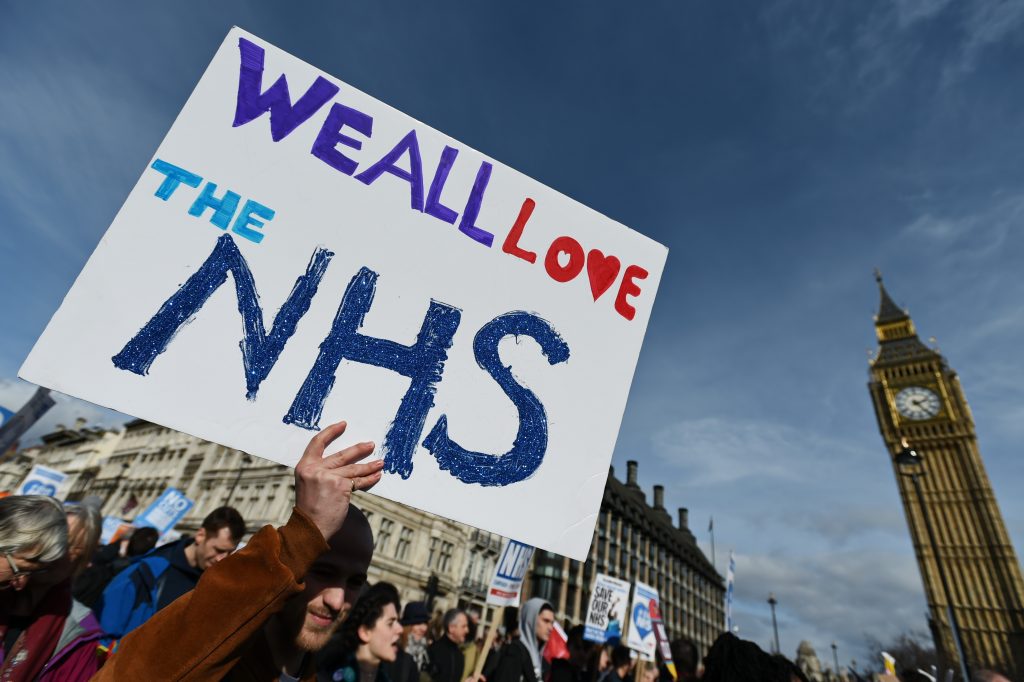 If something is broken, can it be fixed? That may well have been the hoped-for question when the NHS was referred to as ‘broken’. The problem is, the NHS isn’t a car, a computer, a pothole or an attendance record. Its complexity and size make simple summaries such as ‘the NHS is broken’ almost guaranteed to be misunderstood, misaligned – and hurtful.
If something is broken, can it be fixed? That may well have been the hoped-for question when the NHS was referred to as ‘broken’. The problem is, the NHS isn’t a car, a computer, a pothole or an attendance record. Its complexity and size make simple summaries such as ‘the NHS is broken’ almost guaranteed to be misunderstood, misaligned – and hurtful.
Because around a million and half people work for or in the NHS. More work to supply it. Around 400 times that many ‘patient episodes’ were given by the NHS last year. At any one time, most of this service would be good enough or better, some of it barely so, and a hopefully very small proportion would have been lacking in some respect. It is true that when parts of the NHS fail, people suffer – sometimes greatly, occasionally fatally. With numbers this great, that is inescapable. But not insurmountable. It is also inescapable true that parts of the service – after decades of systematic, deliberate, ideal-driven neglect – are starting to fail the public. But this can all be fixed. This can all be made good. It takes political will.
Of course it also takes a great deal of money. ‘Saving’ the NHS’s parlous real estate from (literal) complete collapse in many places will cost a great deal. Many people struggle now to see a GP; many GPs struggle to find work – a calamitous irony that would be farcical were it not so tragic. The question that needs to be asked is, ‘how much are you prepared to pay for a good-enough public service so you don’t have to worry about your health needs being attended to promptly and to the best possible standard – or anyone else’s?’. For years now, one of the most destructive myths that has cloaked the NHS’s state in a fog of denial is that the private sector will, somehow, fill the gap between what people are prepared to pay in their taxes, and what is needed to make good the neglect. DFNHS does not believe in that. Anyone can see that the private sector can do good, and the NHS has used its services on many occasions to address a temporary need. But the danger now is that the private sector will be seen increasingly as an integral part of what the NHS does – taking its tax money and growing as it is. Until it reaches a point where it can convince so many people they would be better off paying the private sector that it can afford to stop relying on NHS contracts, leaving us with a two-tier service that leaves many suffering (those unable to pay). That would be against the founding principles of the NHS, and we are opposed to such a move for that reason.
At the heart of any healthcare or social care system is not a question of money but of social justice. What do people think is fair? What do people think is just? What do people want? These are the ethical questions that govern what a health or social care system is – not how much they cost. Because, as the founding of the NHS itself showed, where the political will to answer these question honestly can be found, the money follows. Where they are denied or confused or opposed, the money stops. Which is where we have been foe several decades now. It is well beyond time to ask the truth: what do people want? The overriding evidence is that people want an NHS which can be relied upon (nearly always), where they do not have to worry about paying, and where they do not have to wait so long that this in itself is causing worry. An NHS, in other words, which reflects and upholds its founding principles, which despite 20-plus years of neoliberal attack still hold true. We stand for those. They remain as true and as unbroken now as they were in 1948.
